Place your adverts here on InfoDig @ low rates; banner ads, sponsored links and guest articles etc. Contact us

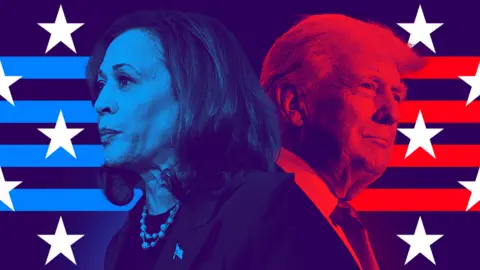 BBC
BBC
Donald Trump enjoys a huge lead among men, while women tell pollsters they prefer Kamala Harris by a similarly large margin. The political gender gap reflects a decade of social upheaval and could help decide the US election.
For the first woman of colour to secure a presidential nomination, and only the second woman to ever get this close, Kamala Harris goes to great lengths not to talk about her identity.
“Listen, I am running because I believe that I am the best person to do this job at this moment for all Americans, regardless of race and gender,” the vice-president said in a CNN interview last month.
And yet, despite all her efforts to neutralise the subject, gender is shaping up to be the defining issue of this campaign.
“Madame President” would be a new thing for America and it’s reasonable to assume that while many voters love the idea, some find the novelty a little unnerving.
The Harris campaign won’t say it publicly, but one official acknowledged to me recently that they do believe there is “hidden sexism” here that will deter some people from voting for any woman for president.
It’s 2024 and few people want to be the jerk who’ll tell a pollster outright that they don’t think a woman is fit for the Oval Office (though plenty are prepared to share misogynistic memes on social media). A Democratic strategist suggested there’s a code, when voters tell pollsters that Harris is not “ready” or doesn't have the right “personality” or “what it takes,” what they really mean is that the problem is she’s a woman.

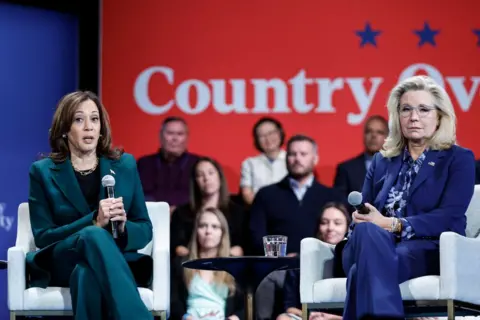 Getty Images
Getty Images
Congresswoman Liz Cheney, who has called Trump "misogynistic", has been helping Harris pitch herself to Republican women
The Trump campaign says gender has nothing to do with it. “Kamala is weak, dishonest, and dangerously liberal, and that’s why the American people will reject her on November 5th,” it said this week. Although Bryan Lanza, a senior adviser to the campaign, texted me to say he’s confident Trump will win because “the male gender gap gives us the edge”.
Last time a woman ran for president, negative attitudes to her gender were clearly a factor. Eight years ago Hillary Clinton touted her being the first female nominee of a major party. The campaign’s slogan “I’m with Her” was a not very subtle reminder of her trailblazing role.
Pennsylvania Congresswoman Madeleine Dean remembers discussing Clinton’s candidacy with voters. I spent an afternoon with Dean as she campaigned in her district this week and she told me that back in 2016 people would tell her, ‘There’s just something about her.’
She says she soon realised that “It was about the ‘her.’ That was a thing. It was that [Hillary] was a woman.”
While Dean thinks that sentiment is less prevalent today, she acknowledges that even now, “there are certain people who just think ‘A powerful woman? No, a bridge too far.’”
A lot has changed for women since 2016. The #MeToo movement in 2017 increased awareness of the subtle - and the not so subtle - discriminations women face at work. It changed the way we talk about women as professionals. MeToo may have made it easier for a candidate like Harris to secure the nomination.
But those big steps forward on the issues of diversity, equity, and inclusion were interpreted by some as a step back, especially for young men who felt they’d been left behind. Or the changes were simply a step too far for conservative Americans who prefer more traditional gender roles.
So for some voters, this November’s election has turned into a referendum on gender norms, and the social upheavals of recent years. This seems particularly true for the voters Kamala Harris has a tough time reaching: the young men who live in a world that is rapidly changing for, well, young men.
“Young men often feel like if they ask questions they are labeled as misogynist, homophobic or racist,” says John Della Volpe, director of polling at the Harvard Institute of Politics.
“Frustrated at not feeling understood, many then get sucked into a bro-culture of Donald Trump or Elon Musk. They look at who the Democrats prioritise - women, abortion rights, LGTBQ culture - and they ask ‘what about us?’”
Della Volpe specialises in polling younger voters. He says the young men he is referring to are not part of some radical alt right, incel cabal. They are your sons, or they’re your neighbour’s sons. Indeed, he says, many support equality for women, but they also feel their own concerns go unheard.
Della Volpe ticks through a list of statistics showing ways young men today are worse off than their female counterparts: they are less likely to be in relationships, they are less likely to enrol in college than they used to, they have higher rates of suicide than their female peers.
Young American women meanwhile are steaming ahead. They are better educated than men, they work in service industries that are growing and increasingly they are earning more than men. In the period since Donald Trump was elected president, young women have also become significantly more liberal than young men, according to the Gallup polling group.
Which is all creating a stark gender split. Over the last seven years, the share of young men who say the US has gone “too far” promoting gender equality has more than doubled, according to the American Enterprise Institute.

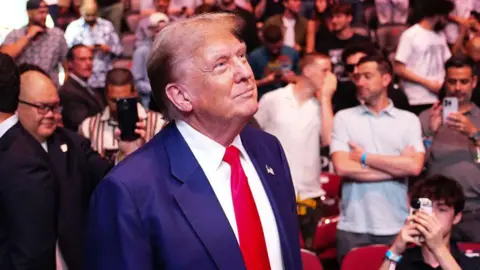 Getty Images
Getty Images
Trump has been courting young male voters by embracing locker room talk and attending Ultimate Fighting Championship events
With his almost intuitive grasp of people’s dissatisfactions, Trump has tapped into that male frustration, and in the final weeks of his campaign he has doubled down on masculinity. He reposted a warning on Truth Social claiming “Manhood is Under Attack.” Recently he joked about a famous golfer’s genitalia.
“This is a guy that was all man,” said Trump, referring to golfer Arnold Palmer. “When he took showers with the other pros, they came out of there – they said, ‘Oh my God. That’s unbelievable.’”
Trump took the locker room talk out of the locker room - and his audience loved it. Riffing about penis size at a political rally, it was the ultimate pushback against stifling political correctness.
In their rallies, and on the airwaves, the Democrats’ response to disaffected men seems to be a dose of tough love. Barack Obama scolded that some men “aren’t feeling the idea of having a woman as president and you’re coming up with other alternatives and other reasons for that.” In a new TV ad, Actor Ed O’Neill was a little snappier but more direct: “Be a man: Vote for a woman.”
In the final days of this campaign, gender is everywhere - and nowhere.
Donald Trump wants manhood front and centre of this race. Kamala Harris barely acknowledges she is a woman running for office. In a New York Times poll, Trump leads with male voters by 14%. Harris leads women by 12%.
Ladies and gentlemen, boys and girls - they may well decide this election.

 2 hours ago
25
2 hours ago
25
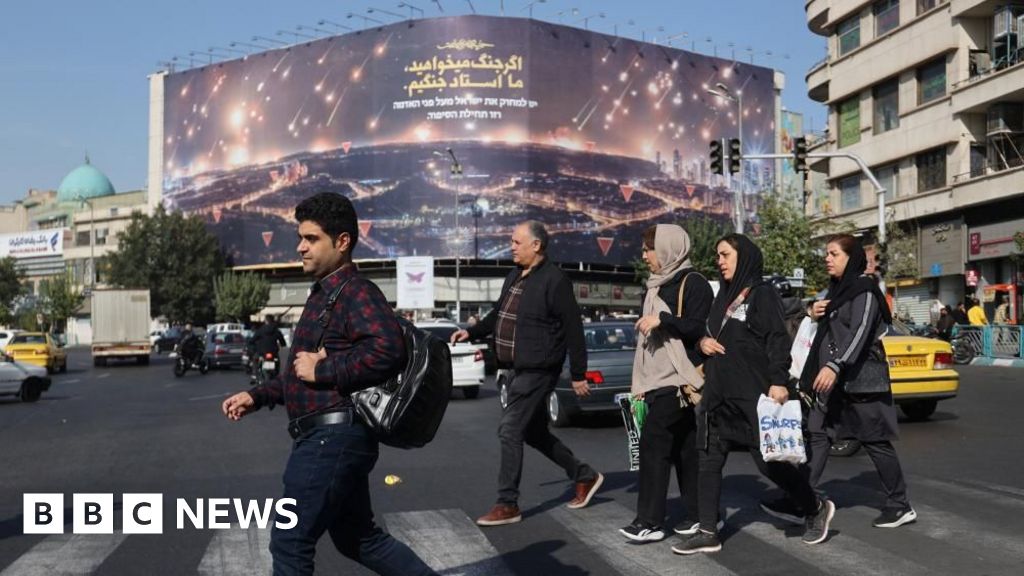
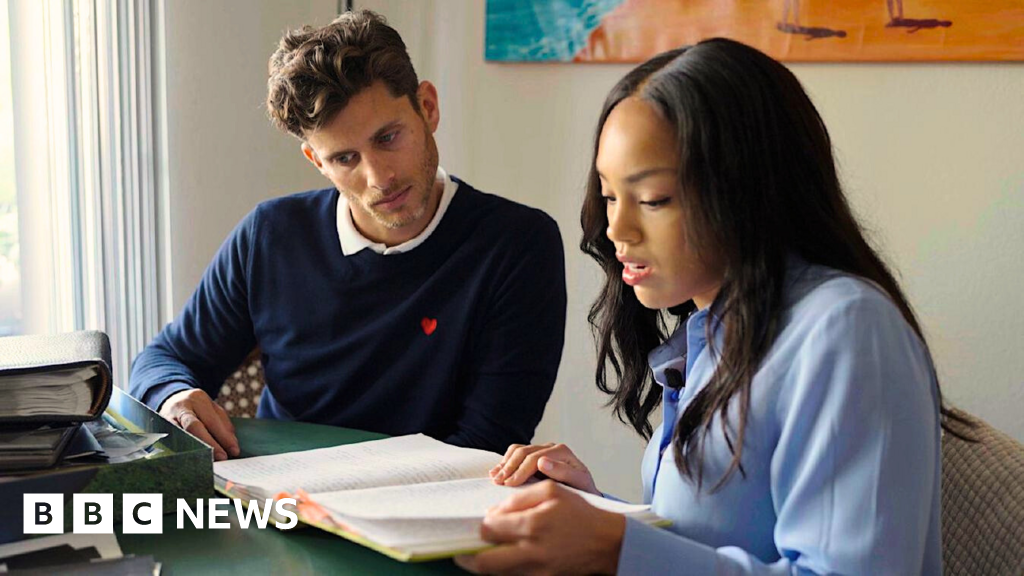
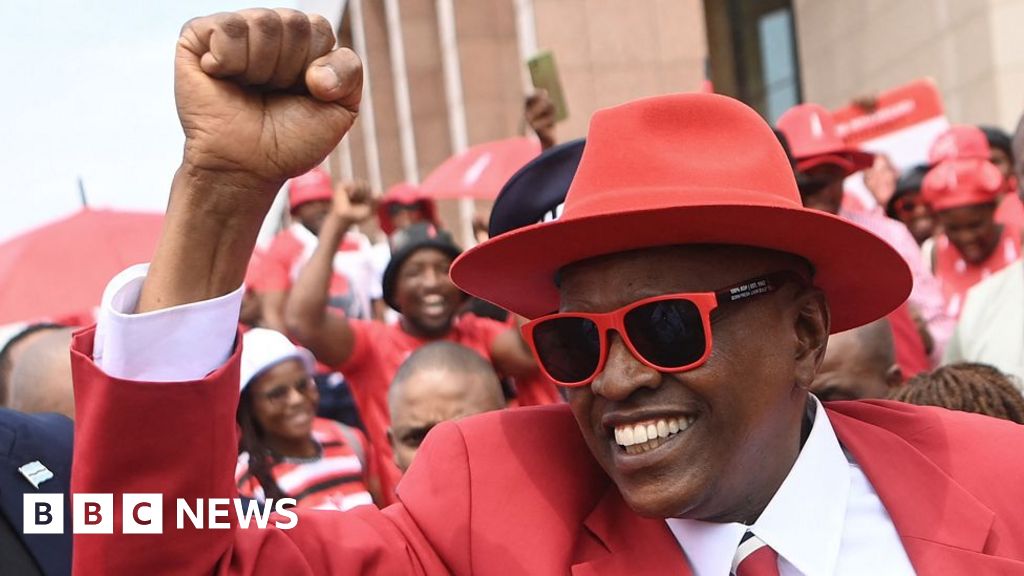


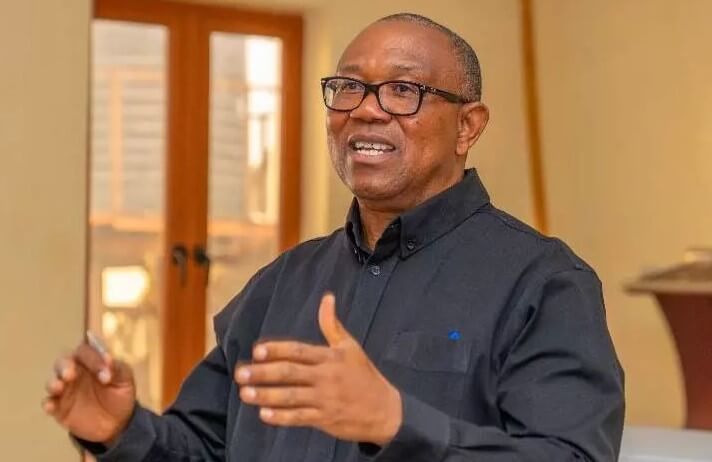



)
)


